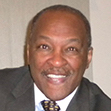by Al-Tony Gilmore
Since the Supreme Court’s affirmative action ruling, the conversation and debates on legacy admissions – the preferential treatment given to the children of alumni in the college admissions process – have moved closer to center stage in higher education. Legacy preferences, however, are much more consequential and widespread at the nation’s most selective colleges than other schools. Over three quarters of the nation’s most prestigious schools and virtually all of the nation’s top 100 liberal arts colleges employ the practice, compared to only 14 percent of public universities nationwide. Being a legacy applicant, says Princeton sociologist Thomas Espenshade, provides a boost equivalent to scoring 160 points higher on the SAT. Higher education researcher, Michael Hurwitz, found that legacy applicants saw a 45 percentage-point increase in their chances of admission compared to otherwise equally qualified candidates who were not legacies.
Legacy admissions originated after World War I, as a response to the influx of immigrant students, mostly Jews, into America’s most selective colleges. When quotas on Jewish students became hard to defend, schools sought to limit Jewish enrollment with other considerations one of which was legacy status. Over time the practice became institutionalized on application admission forms as a box to check, and rationalized by those schools employing the practice as one that promotes alumni pride and is useful as a fundraising tool.
Families who benefit from legacy admissions will certainly have stronger school identification, but there is no convincing evidence that the favorable treatment of the children of alumni is tied to increased financial contributions. Underrepresented minorities, according to John Brittain, of the Lawyers Committee for Civil Rights, make up only 6.7 percent of the legacy-applicant pool. The boost given to legacy applicants is what critics point out as a glaring advantage and generational privilege enjoyed by White and higher income families, and inevitably will promote inequality. Others point to the hypocrisy of those who oppose affirmative action and its considerations of race, but remain silent on legacy admissions and its considerations of ancestry.
With the singular exception of Hampton University, all of the elite HBCUs – Howard, Morehouse, Spelman, and North Carolina A&T and a number of the selective ones – employ legacy admissions, and defend them as not being the same as those at the elite and selective predominately White institutions (PWIs). On the whole, most HBCUs do not have legacy admissions and, like most PWIs, their admission rates are higher and their admission standards are more flexible, most admitting over 75 percent of all applicants. But for those whose application contains the legacy check box and whose admission slots have become substantially more competitive, the continuation of the practice will be under greater scrutiny.
At Howard University, where 1 in 4 are legacy students, in a student-led protest, students have circulated a petition calling for the president to abolish the practice, maintaining that “the legacy preference lessens the opportunity for first-generation college students” to gain admission.
At Spelman College, Chelsea Holley, the school’s director of admissions, explains that while the application does ask about legacy connections, Spelman attaches no quantitative weight to the applicant’s response. Holley goes on to draw an illustrative historical line between legacy at PWIs and the meaning of legacy at HBCUs. “When we talk about legacies in the African American community,” she explains, “we’re still only one or two generations removed from people who only had access to grade-school education. So this idea of privilege being passed down doesn’t ring the same for our schools.” Holley further elaborates that the legacy box on the application is for those students who have close ties to Spelman to be encouraged to ” keep education alive in their family trees.” That elusive explanation may be valid, but it also may be insensitive to those applicants without family ties to the school, or those who are first-generation college applicants who feel disadvantaged in being unable to check the legacy box.
President Joe Biden, U.S. Secretary of Education, Miguel Cardona, civil rights organizations such as the NAACP and the American Civil Liberties Union, some think tanks, alumni groups, college students, and members of Congress from both sides of the aisle, are challenging legacy practices. A growing number of more than 100 elite and selective schools have recently eliminated it.
In December of 2023, Senators Todd Young (R-Ind.) and Tom Kaine (D-Va.) introduced new legislation designed to ban college legacy admissions. It has found bipartisan support from politicians who rarely find common ground, such as Rep. Alexandria Ocasio-Cortez (D-N.Y.) who finds legacy admissions ” affirmative action for the privileged,” and Senator Tim Scott (R-S.C.) who feels ” schools should end preferential treatment for legacy kids.”
U.S. Congressman Jamaal Bowman of New York and Senator Jeff Merkley of Oregon have proposed the Fair College Admissions for Students Act Bill, which extends the logic of the Supreme Court’s ruling against preferential treatment based on race to preferential treatment based on legacy status. The bill estimates that legacy admissions “can take up to 10 to 25 percent of available slots at top universities.” Specifically, this bill would prohibit institutions of higher education participating in federal student aid programs from giving admissions preference to students with legacy or donor status. But the bill temporarily exempts HBCUs by granting the U.S. Secretary of Education the ability to waive the legacy preference prohibition for an award year for HBCUs, tribal colleges or universities, and minority-serving institutions, contingent upon those institutions demonstrating that their use of legacy admissions is in the best interest of historically underrepresented students. Should that bill become law, it will be interesting to see how effectively HBCUs address the distinctions between legacy applicants and much more underrepresented first-generation college applicants.
With public opinion trending against legacy admissions and the banning of affirmative action, the landscape of college admissions will be changed and HBCUs will not be exempt from those changes, especially the selective ones. The options of highly talented Black college applicants will be restricted with fewer gaining admission to elite and selective PWIs. One alternative for those students may be the top-tiered HBCUs, which were already experiencing record applications and enrollments prior to the court decision. It will be difficult to determine which of those students have selected HBCUs as their priority schools, and which have selected them as safety-net schools, but the available slots will be limited and competitive. Applicants to those schools which have legacy status will challenge any preference that devalues merit. This will force those schools to either eliminate legacy admissions or provide more transparency on precisely the role it plays in the admission processes.
Lastly, should the bipartisan proposed bill against legacy become law, those HBCUs will need satisfactory explanations as to how legacy considerations are in the best interests of underrepresented students while not disadvantaging first-generation college applicants. The battles over race and affirmative action in the courts may transition to HBCU campuses as battles over class and privilege, as emphasized in the Howard protest petition. HBCUs must brace, plan, and be prepared for uncomfortable truths, and the probabilities of outcomes currently unknown.
 Al-Tony Gilmore is Distinguished Historian Emeritus of the National Education Association and has researched and written widely on HBCUs, and African American sports and social history, including three books on African American educators. He has served as a history professor at Howard University, the University of Maryland, and as a visiting scholar of history at George Washington University. Dr. Gilmore is curator of the widely acclaimed Voter Suppression exhibition, which recently appeared at the Maltz Jewish Museum in Cleveland, Ohio, and is currently on display at the Skirball Museum in Los Angeles, California.
Al-Tony Gilmore is Distinguished Historian Emeritus of the National Education Association and has researched and written widely on HBCUs, and African American sports and social history, including three books on African American educators. He has served as a history professor at Howard University, the University of Maryland, and as a visiting scholar of history at George Washington University. Dr. Gilmore is curator of the widely acclaimed Voter Suppression exhibition, which recently appeared at the Maltz Jewish Museum in Cleveland, Ohio, and is currently on display at the Skirball Museum in Los Angeles, California.













Much of the national conversation treats legacy admissions as the sole province of PWI ignoring the reality that legacy admissions is a common practice in many HBCU’s. As a result, the conversation fails investigate the impact of the recent Supreme Court decision on this practice within HBCU. Once again, Dr. Gilmore has appropriately spotlighted an issue that needs scrutiny. Giving preference to the progeny of HBCU alumni has the same impact as giving preference to progeny of PWI alumni. While HBCU tend to be more monetarily strapped than PWI, their argument that legacy admissions spiritus alumni giving has no more validity than it has for PWI since research show no correlation between alumni giving and legacy admissions. It is sensible to allow “special exception admissions” for high dollar alumni donors, but blanket legacy admissions must be reconsidered. Dr. Gilmore’s thesis that HBCU are not exempt from the Supreme Court decision and must confront legacy admissions policy is totally correct. Let’s watch and see what happens.
As a graduate of Howard University (B.A.), and Morgan State University (M.A.) (where I also teach African American History), I thank Dr. Gilmore for writing this piece. Much of the debate around admissions in higher education does not take into account the historical nuance that I feel H.B.C.U.’s require to be adequately brought into the conversation. This piece does take at least a first step in the right direction. While I admit my stance may not be the most popular one, but as a Howard graduate, I am actually not opposed to Howard keeping the legacy admissions practice. While I was not a first generation college student, I was the first in my immediate family to attend Howard, and thus begin a legacy tree of my own having had some cousins follow behind me. I ardently disagreed with the Supreme Court’s decision, and believe that knowingly or unknowingly the Asian-American students who pressed the issue threw a glitch in the white supremacist system of higher education, but at the same time did its bidding.
With that said, while I will not dispute your statistic that one quarter of Howard students are legacies, I do believe that to be a legacy student at Howard means something different than at Harvard, AND I would also propose that the other 75% of students who are at Howard are receiving a much more holistic educational experience than they would elsewhere, despite the fact that H.B.C.U.’s as a whole are grossly underfunded. I have seen firsthand how Howard University has taken in students who were first in their family to attend college, and placed them next to legacies, and children of famous families, and all of them were offered the same or similar experiences. In summation, I would say that I have not seen the downside to legacy admissions at Howard or any other H.B.C.U., and would be very interested in any such research.